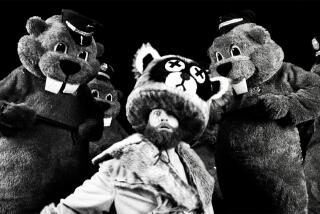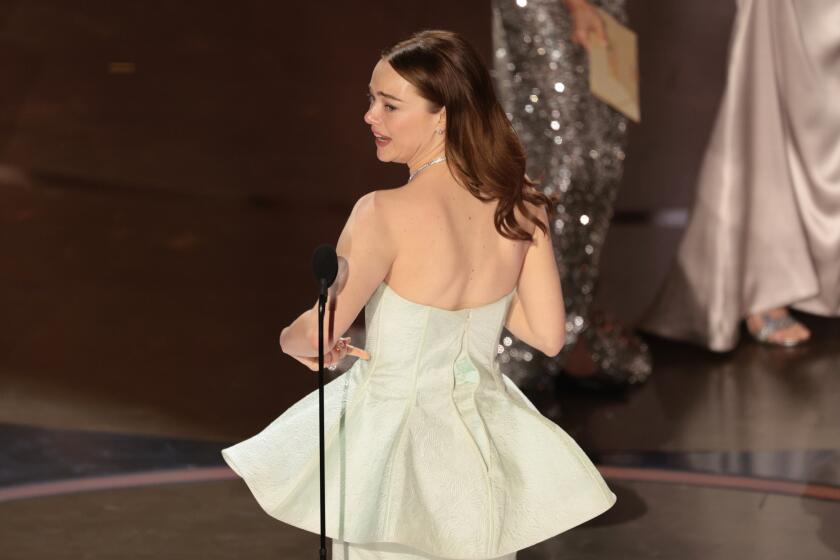He played by his own rules
Robert Altman once told me, “I’ve got a short fuse and a big mouth.” But the director was also a notorious charmer, both of trusting actors, who’d kill to please him, and not-so-trusting studio executives, who nonetheless gave him the money to make a long, wonderful string of movies that often didn’t make enough dough to pay for the paper in the fax machine.
Like so many great filmmakers, Altman was often unappreciated in his own time. The critics blew hot and cold. Oscars eluded him. After five best director nominations and zero wins, the academy finally gave him a lifetime achievement award this year, allowing him to reveal that he’d had a heart transplant a decade ago.
Maybe that would be the right way to see Altman. He might have had two hearts, but he was one of a kind. Famously contrarian, he had little nice to say about the people who gave him money, bashed George W. Bush when the president was at the zenith of his popularity, and dismissed “Titanic” as “the most dreadful piece of work I’ve ever seen in my entire life.”
However prickly, Altman had something many of his peers lacked: an original cinematic mind. In America, so many directors have become commercially minded that you have to look abroad for comparisons. As with Fellini, Godard or Almodovar, you only needed to see five minutes of an Altman film to know who was behind the camera.
The last time I was with Altman was after he’d made “Gosford Park,” a canny dissection of the mores of 1930s-era British aristocracy disguised as a murder mystery. The movie was so steeped with Altman’s signature style, especially his fondness for murky, overlapping dialogue, that during Oscar season the studio was deluged with complaints from academy members who’d tried watching the movie on their screeners, only to find much of the dialogue unintelligible.
Not that Altman cared; he did not stoop to conquer. As he said of today’s movie studios: “They sell shoes; I make gloves.” In “Gosford Park,” he purposely had his actors use a choice curse word that ensured an R rating. Asked why, he said he wanted to keep 14-year-old boys away; he knew they wouldn’t like the film.
Altman always had an air of impatience about him, perhaps because he was such a late bloomer. He first came to Hollywood in 1946 after flying B-24 bombers during the war. He failed over and over, ending up making industrial films in Kansas City, his hometown. He spent much of the 1960s working in obscurity, doing episodic television. He was 45 by the time he had his first, and biggest, hit: “MASH,” in 1970. After that, he never stopped working.
The best of his movies hold up, perhaps because they weren’t made to suit the fashion of the time. “MASH” feels as unconventional as it did on release, “Nashville” and “McCabe and Mrs. Miller” remain edgy and absorbing, while “The Player’s” bracing portrait of Hollywood ennui and amorality seems more prescient than ever. “The Long Goodbye,” dismissed as a cartoonish take on Raymond Chandler upon its release in 1973, now plays like a quick-witted classic, as much a commentary on stoned ‘70s L.A. as the detective genre. And the little-seen “Vincent & Theo,” Altman’s 1990 portrait of Van Gogh’s relationship with his brother, is a marvel, a tender elegy to a tortured artist that not only packs an emotional wallop but also illustrates how Altman could even breathe life into Hollywood’s dreariest genre, the biopic.
Anne Rapp, one of Altman’s favorite screenwriters, said the director was like a farmer. Each new film was like a spring crop. Boom or bust, he was always thinking about the new planting. Altman was making good movies long after most of his peers had given up the ghost because he refused to rely on craft alone. He was a restless spirit. In “McCabe and Mrs. Miller,” eager to show the growth of a frontier town, he shot the film in sequence, putting his carpenters into costume so we could see them building the town his characters would inhabit as the story progressed.
Even as an old man, Altman never lost his curiosity about the strange ways of the world. Always willing to experiment, he happily gave his trust to inspiration and improvisation. In Hollywood, filmmakers often say, “I’ll do one for the studio, but then I’ll do one for me.” With Altman, all the movies were for him. And thanks to his fierce refusal to compromise, they are all for us too.
More to Read
Only good movies
Get the Indie Focus newsletter, Mark Olsen's weekly guide to the world of cinema.
You may occasionally receive promotional content from the Los Angeles Times.






